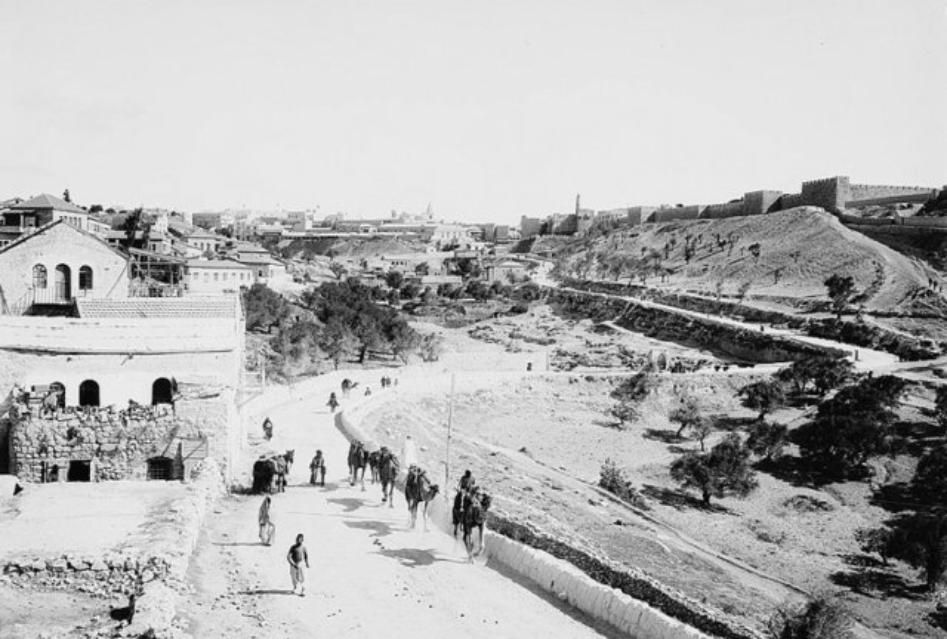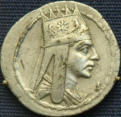


Cricket is supposed to have originated some 300 years ago in England, but it is
just possible that the game zealously followed all over the British Commonwealth, is
older than currently thought. The story, told by the distinguished kaghakatsi
Armenian professor Dr Abraham Terian, was first released online by the Australian
Associated Press, and has been picked up around the world, with both the reverent
and irreverent, having a field day with the intriguing revelation.
Terian stumbled across the snippet in an ancient Armenian manuscript, The Gospel of Infancy, housed in the manuscript library of the Armenian Patriarchate of Jerusalem. He has since translated the book into English and it has been published by the Oxford University Press. Terian notes that long before the English launched cricket three centuries ago, similar games were being played as early as the 8th century in the Punjab region, as Derek Birley writes in his "Social History of English Cricket." But he says that there is good reason to believe that similar games were played in the Middle East long before that time. Terian, who was born and grew up in the Armenian Quarter, in the Old City of Jerusalem, and who was recently a visiting professor at the Hebrew University of Jerusalem as Fulbright Distinguished Chair in the Humanities, says the Gospel was translated into Armenian in the 6th century from a much older lost Syriac original. It contains a passage that tells of Jesus playing what may well be the precursor of cricket, with a club and ball. Dr Terian discovered the manuscript more than a decade ago at the Saint James Armenian Monastery in the Old City of Jerusalem. He has now identified the same passage in a couple of other manuscripts of the same gospel, of which some 40 copies exist in various archival collections in Europe and the Middle East, including the oldest copy now in Yerevan. The latter manuscript is dated 1239 (no. 7574, Madenataran collection), while the undated Jerusalem manuscript is considerably later (no. 1432, in the Saint James collection). AAP quotes Dr Terian as saying the gospel relates how Jesus, at the age of nine, had been apprenticed to a master dyer named Israel in Tiberias, on the shores of the Sea of Galilee. "Jesus is instructed to watch Israel's house and not leave the place while the master goes away on a tour to collect clothes to be dyed. But no sooner has Israel left the house, than Jesus runs out with the boys," Dr Terian says, AAP reports. "The most amazing part of the story of the nine-year-old Jesus playing a form of cricket with the boys at the seashore, is that he would go on playing the game on water, over the sea waves," which Dr Terian says echoes allusions to Jesus walking on the Sea of Galilee, as told in the gospels. "Jesus would take the boys to the seashore and, carrying the playing ball and the club, he would go over the waves of the sea as though he was playing on a frozen surface, hitting the playing ball. And watching him, the boys would scream and say: 'Watch the child Jesus, what he does over the waves of the sea!' Many would gather there and, watching him, would be amazed. "When Joseph heard this, he rushed there and said: 'Son, what work are you doing? Your master has gathered everything in the house and has entrusted it to you.' "Jesus said: 'I have done all that my master instructed me. I shall wait for his return.' Joseph did not hear what Jesus told him. "When Jesus came to his mother, Mary said to him: 'Son, have you done all that your master instructed?' Jesus said: 'I have done everything and nothing is missing.' Mary said: 'I have noticed that this is the third day that you have not entered that house.'" As soon as the last words were spoken, Israel shows up, and Jesus has to account for what he has done in the master’s absence. A fascinating miracle-story ensues. "Of course, the story echoes allusions to Jesus’ walking on the Sea of Galilee, as told in the canonical gospels. But the apocryphal story shows that for a ball game even Jesus would forget work and would go to have fun with the boys, for days," Terian adds.
Armenian Jerusalem


playing fields of Jerusalem?
























